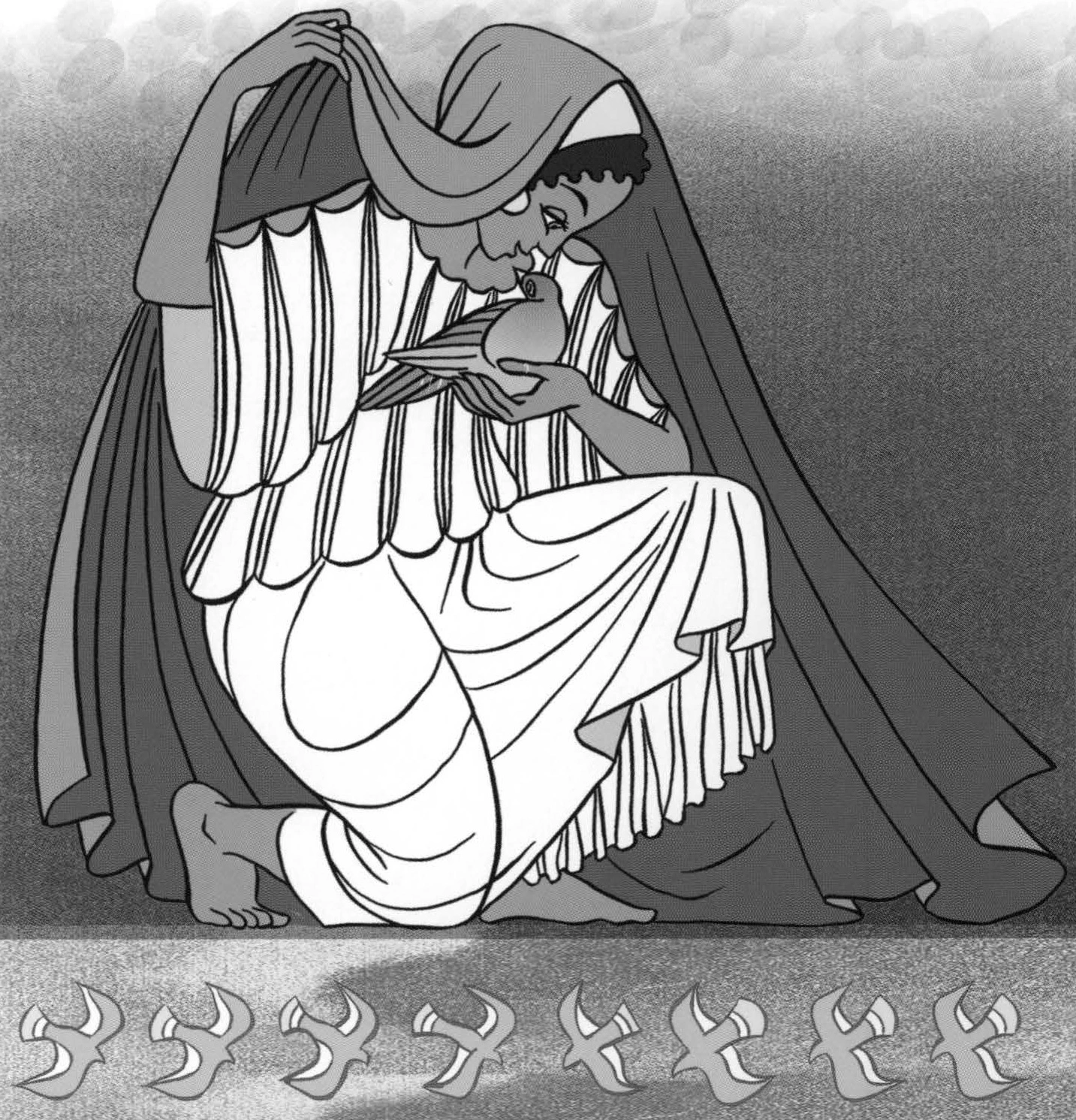Hera
Publié le 17/01/2022

Extrait du document

(Lady) Greek Queen of Olympus, sister
and wife of Zeus, daughter of Cronus and Rhea.
Known as Juno by the Romans. Mother of Ares,
Hebe, Hephaestus, and Eileithya. The patroness of
marriage, Hera was the goddess most concerned with
the welfare of women and children.
Hera was an ancient goddess, existing long before
the new gods, including Zeus. Her original name is
unknown: Hera is a title, meaning "Lady." Her original
cult was so strong that the newcomers to the Greek
peninsula from the North had to acknowledge it and
absorb it into their own religion by making Hera the
consort of Zeus, the king of the Olympian Gods.
Hera was depicted as a young woman, fully clad and
of regal beauty, sometimes wearing a high, cylindrical
crown. Her emblems include a scepter topped with a
cuckoo and a pomegranate, symbol of married love
and fruitfulness. The peacock is sacred to Hera, testifying
to the services of the hundred-eyed Argus (1).
The marriage of Hera and Zeus was not a happy
one, because Zeus was unfaithful to his wife and
Hera was angry and jealous. She sought to avenge
herself on Zeus and his loves in various ways. The
many quarrels between Hera and Zeus may reflect
the conflicts between the old gods, where woman was
the Earth Mother and Queen, and the new maledominated
religion of Zeus and the Olympians.
Hera and the Cuckoo There are several legends
about how the marriage of Zeus, chief god of
the Olympians, and Hera, queen of Olympus, came
about. The writer Pausanius tells the most famous
one. In this story, Zeus appears before Hera in the
shape of a cuckoo, a small, shivering bird, drenched
with rain. Tenderhearted Hera takes the poor creature
to her bosom to warm it. Zeus at once resumes
his normal form and Hera finally agrees to become
his wife. The gods solemnly celebrated the marriage
on Olympus, but the ceremony did not put an end
to the amorous adventures of Zeus. With Zeus, Hera
had two sons, Ares and Hephaestus, and a daughter,
Hebe. Some legends say that Hera conceived and
gave birth to Hephaestus without any help from
Zeus. Some say that she was also the mother of
Eileithya, about whom little is known.
Hera and Ixion Hera was ever faithful to her
fickle husband, Zeus. However, she was very beautiful
and men found her desirable. Ephialtes, one of the
Aloeids, was determined to capture Hera and make
her his wife. Thus he and his brother started a war
with the Olympians. Another admirer, King Ixion of
Lapith, fell in love with Hera at a banquet at Olympus.
When Zeus found out about Ixion's advances, he
was angry and jealous and used his magic to shape
a cloud in the likeness of Hera. Ixion made love to
the cloud, whose name was Nephele, and from this
union was born Centaurus, father of the Centaurs.
Ixion was bound to a fiery wheel and doomed to whirl
perpetually through the sky.
Hera and Io One of the loves of Zeus was the
maiden Io. Zeus turned Io into a beautiful white cow
to protect her from Hera, but Hera was not deceived.
She demanded to be given the heifer and Zeus could
not refuse her. Hera then tied up the heifer and the
hundred-eyed Argus guarded her. The god Hermes
rescued Io by using songs and stories to close all the
eyes of Argus in sleep, and then killing him. But Io
remained a heifer, relentlessly pursued by a gadfly
sent by Hera, until she reached Egypt. Hera transferred
the eyes of Argus onto the magnificent tail of
the peacock, where, legend has it, they remain to this
day. Some scholars believe that Io was a form of Hera
as an ancient goddess dispossessed by the Olympians.
In Homer's work, the goddess Hera is often described
as "ox-eyed."
Liens utiles
- Io Greek The beautiful daughter of the river god Inachus, and a priestess of Hera.
- Iris Greek Messenger of the gods, especially of Zeus, and a devoted attendant of Hera.
- Poseidon Greek Sea god and one of the Olympian gods; son of Cronus and Rhea; brother of Zeus, Hades, Demeter, Hera, and Hestia; husband The Roman goddess Pomona displays her fruits of plenty in the painting by French artist Nicholas Fouche (1653-1733).
- Enyo (1) Greek A goddess of war, specifically known for sacking cities and towns of the enemy; daughter of Zeus and Hera; depicted as the sister, daughter, or mother of the war god Ares, often included as a companion of Ares when he went into battle.
- Hesperides (Daughters of the West) Greek The Dryads, or wood nymphs; sisters, who lived in the beautiful garden on the western edge of the world and helped guard the tree that grew the golden apples of the goddess Hera.































